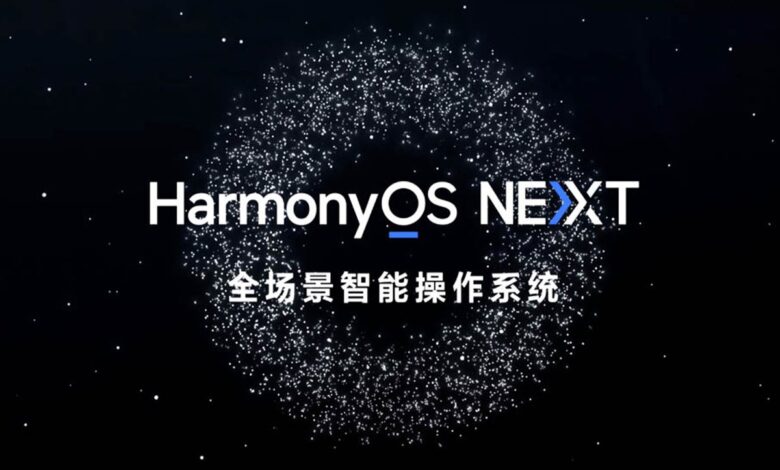Huawei has made a bold move to challenge Android
HarmonyOS has been steadily evolving, and NEXT represents a significant leap. This iteration ditches the foundations of Linux and the Android Open Source Project (AOSP) entirely.

Huawei’s mobile division has reached a significant milestone: one billion devices in circulation globally. This achievement underscores their resilience and adaptability, especially considering the challenges they’ve faced in recent years.
They’re celebrating with a major announcement: HarmonyOS NEXT, a new operating system that marks a bold step towards software independence by Huawei.
HarmonyOS has been steadily evolving, and NEXT represents a significant leap. This iteration ditches the foundations of Linux and the Android Open Source Project (AOSP) entirely.
Instead, it boasts a completely independent architecture built around Huawei’s own kernel. This means a clean break from the Google-controlled ecosystem – HarmonyOS NEXT won’t run Android apps.
This move is a strategic shift for Huawei, aiming to create a self-sufficient software environment that rivals established giants like Apple and the Android ecosystem. According to Huawei, this fresh approach translates to a 30% performance boost and a 20% reduction in power consumption.
HarmonyOS NEXT comes packed with innovative features. Star Shield Security prioritizes user privacy and data protection, addressing growing concerns in the digital age.
Harmony Intelligence, powered by advanced AI, aims to deliver smarter and more intuitive user interactions. This focus on a seamless and potentially more secure user experience could redefine the mobile operating system landscape.
The rise of HarmonyOS NEXT presents a real challenge for Apple. They’ve been steadily growing in China, but Huawei’s home-field advantage and ability to cater to local preferences could put a dent in those gains.
While Apple’s ecosystem is renowned for seamless integration and security, HarmonyOS NEXT could potentially offer similar, if not better, benefits within the Chinese market. This competition will likely push Apple to re-evaluate its strategies and ramp up innovation to maintain its foothold in this crucial market.
For the Android landscape, Huawei’s departure could trigger a ripple effect. Their size and influence as a smartphone manufacturer could inspire other companies to re-think their reliance on Android. This could lead to more diversity and competition within the market, with some manufacturers potentially exploring specialized mobile ecosystems.
However, this fragmentation could also introduce compatibility problems and a more complex environment for developers and users alike. Google, the dominant player in the Android space, will face a fragmenting user base and will need to step up its offerings to retain its position.
Huawei’s move towards software independence reflects a broader trend in the tech industry. Major companies are increasingly prioritizing their own software environments, seeking greater control over the user experience and data flow.
This aligns with China’s push for self-reliance in technology, and it could have significant implications for other companies who may need to adapt to changing dynamics.
The rise of HarmonyOS NEXT, with its focus on privacy, AI-driven intelligence, and smart capabilities, offers a glimpse into the potential future of mobile technology.
Consumers are demanding both increased data security and more intuitive interactions with their devices. Companies that can deliver best-in-class solutions through machine learning and AI will be well-positioned for success.
Huawei’s bold move with HarmonyOS NEXT promises to reshape the mobile technology landscape. Consumers can expect more choices and potentially more innovative and secure devices.
This heralds a new era of competition, forcing Apple and Android manufacturers to reassess their strategies and push the boundaries of innovation if they want to stay ahead of the curve.
With the global tech landscape in flux, the next few years will be crucial in determining how this budding rivalry plays out and ultimately shapes the future of mobile technology.












